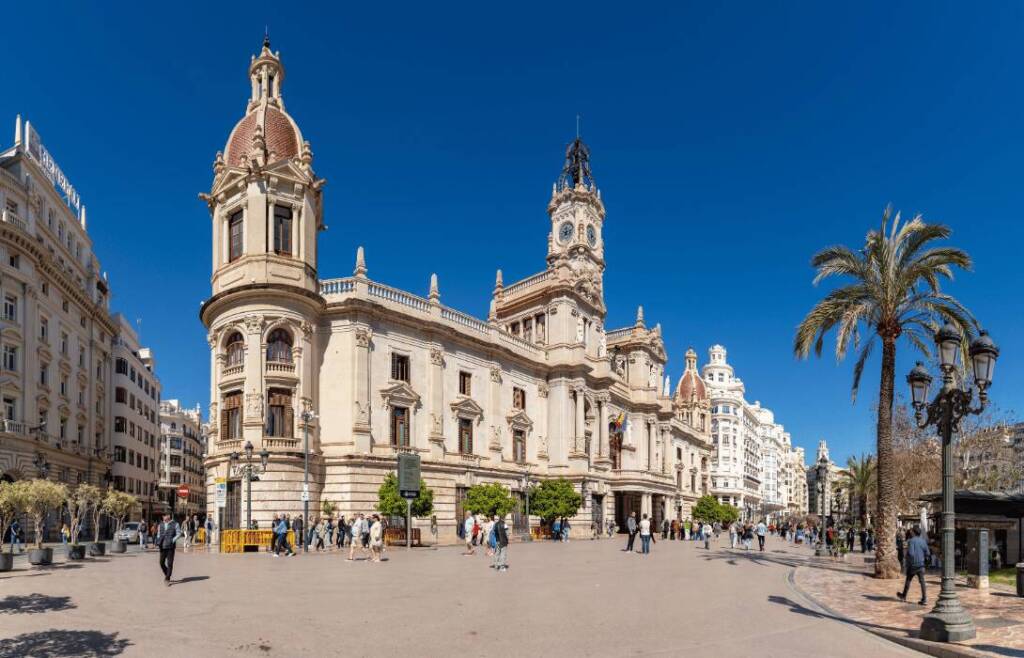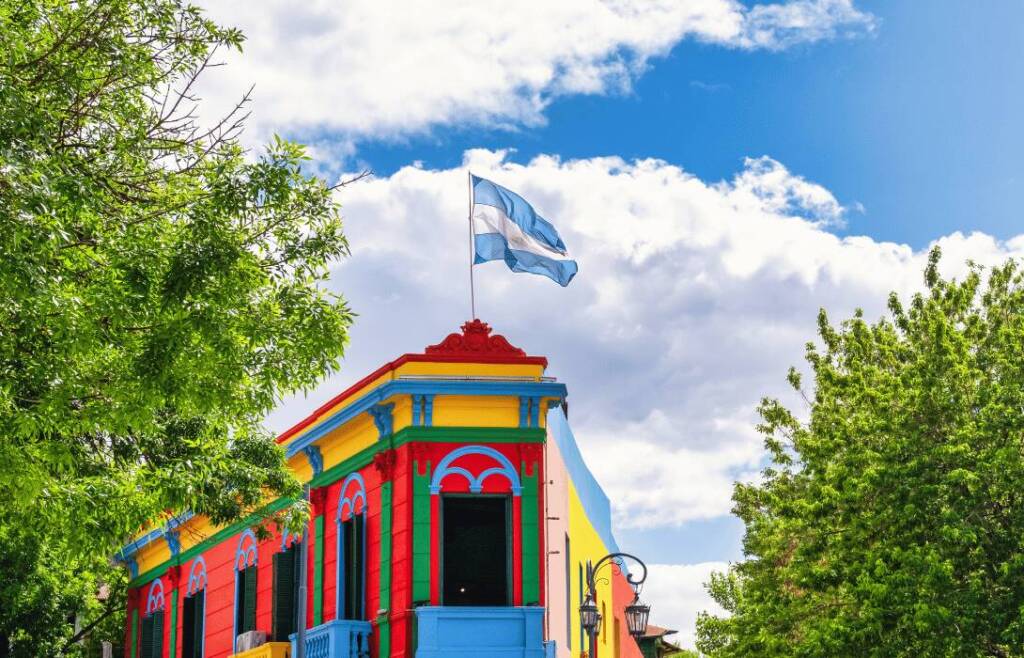The digital nomad lifestyle has undergone a tectonic shift. What was once a niche movement of backpackers with laptops has matured into a global economic pillar. Remote work is no longer a temporary perk; it is a fundamental way of life for millions of professionals.
Over 60 countries now offer dedicated Digital Nomad Visas (DNVs), and the competition to attract high-earning remote talent has turned into a “Global Talent War.” In 2026, nomads are no longer looking for just “cheap coffee and fast Wi-Fi.” They are looking for tax efficiency, path-to-citizenship options, 5G-enabled rural retreats, and “slow travel” ecosystems. As these stays become longer and more complex, having comprehensive travel insurance has transitioned from a “nice-to-have” to a critical pillar of a nomad’s toolkit, ensuring that your health, your high-end equipment, and your legal visa status remain protected across every border you cross.
Index
The 2026 Nomad Manifesto
Before we unveil the list, we must define the “2026 Standard.” The criteria for a top-tier nomad destination have evolved:
- Legal Longevity: We prioritize destinations offering 1-to-5-year visas with clear renewal paths and potential routes to permanent residency.
- Infrastructure 2.0: High-speed internet is no longer a highlight; it is a baseline. We look for 5G ubiquity, Starlink availability in rural areas, and “Smart City” initiatives.
- Financial Optimization: We seek countries that offer tax exemptions on foreign-sourced income or flat-tax regimes designed for the remote workforce.
- Community Integration: We value ecosystems where nomads and locals coexist through impact programs and shared coworking hubs.
- Quality of Life: High safety ratings, world-class private healthcare, and a rich cultural fabric are non-negotiable.
Best countries for Digital Nomads
If you are planning your remote work strategy for 2026, this is the only guide you need.
Japan
Japan has officially claimed the title of the world’s most trending nomad destination in 2026. Following the massive success of its initial Digital Nomad Visa launch, the country has refined its approach to cater to high-income tech and creative professionals.
The Visa Landscape
Japan’s Digital Nomad Visa allows for a seamless entry for those earning above a specific threshold. While the standard permit is valid for six months, 2026 has seen the rise of “Specified Activities” status for those contributing to local tech incubators, allowing for longer stays and deeper integration into the Japanese economy.
Top hubs
- Fukuoka: Known as Japan’s “Silicon Valley,” this city offers a dedicated Global Startup Center and a cost of living significantly lower than Tokyo’s.
- Tokyo: The undisputed capital of tech and culture. In 2026, neighborhoods like Shibuya and Shimokitazawa have become the world’s most advanced coworking districts.
- Sapporo: For nomads who prefer a cooler climate and world-class skiing, Hokkaido’s capital has built an impressive summer nomad community.
Why it wins in 2026
Japan offers a level of safety and public infrastructure that is unmatched. The yen remains highly competitive for those earning in USD or EUR, making luxury dining and high-end living more accessible than in many Western capitals.

Spain
Spain has successfully transitioned from a tourist hotspot to a permanent remote work hub. Its “Startup Law” and the associated Digital Nomad Visa have become the most popular route for professionals seeking a foothold in the European Union.
The Visa landscape
The Spanish DNV is one of the few that allows you to apply as a tourist and convert to a three-year residency permit immediately. Crucially, this time counts toward the years required for permanent residency and, eventually, Spanish citizenship.
Top hubs
- Valencia: Consistently ranked as one of the world’s best cities for expats, Valencia offers a perfect blend of beach life, historic architecture, and a thriving tech scene.
- Malaga: The “Silicon Valley of the South.” Malaga has attracted global tech giants, creating a high-energy environment for remote networking.
- The Canary Islands: Specifically Tenerife and Gran Canaria, which offer “endless summer” weather and a specialized nomad infrastructure.
The financial edge
Under the “Beckham Law” tax regime, eligible nomads can opt for a flat 24% tax rate on income up to €600,000. This makes Spain not just a lifestyle choice, but a strategic financial one for high-earning freelancers.

Thailand
Thailand has completely reinvented its relationship with remote workers. The era of the “visa run” is over, replaced by the revolutionary Destination Thailand Visa (DTV).
The Visa landscape
The DTV is a five-year, multiple-entry visa that allows for stays of up to 180 days at a time. It is designed for remote workers, freelancers, and those attending “lifestyle” activities like Muay Thai or Thai cooking classes. It is arguably the most flexible and accessible long-term visa in Asia.
Top hubs
- Bangkok: The world’s capital of urban nomadism. With luxury condos featuring built-in coworking spaces, it offers an incredibly high standard of living.
- Koh Samui: For those seeking an “Island Office,” Samui has overtaken other islands due to its superior airport, private hospitals, and high-speed fiber-optic network.
- Chiang Mai: Now a “Green City,” Chiang Mai has solved previous seasonal air quality issues through reforestation and sustainable urban planning, remaining a low-cost, high-community favorite.
The nomad community
Thailand remains the most social destination on this list. If your goal is to network with e-commerce founders and digital entrepreneurs, the cafes of Nimman or Sukhumvit are the places to be.

Argentina
Argentina has become the premier choice for nomads who prioritize culture, cuisine, and time-zone alignment with the Americas. Despite economic shifts, it remains a “luxury-on-a-budget” destination for foreign currency earners.
The Visa landscape
The Argentinian “Remote Work Visa” provides a straightforward legal framework for one year, with easy renewal. The government has aggressively marketed “Nomad BA” (Buenos Aires) as the premier creative hub of the Southern Hemisphere.
Top hubs
- Buenos Aires: Known as “The Paris of the South,” neighborhoods like Palermo and Recoleta offer European elegance with a distinct Latin soul.
- Mendoza: For the nomad who loves wine and the outdoors, working with a view of the Andes has become a 2026 staple.
The advantage
For US-based professionals, Argentina offers a “near-shore” time zone. You can enjoy a world-class steak dinner and a late-night tango show without sacrificing your 9-to-5 productivity.
Travel insurance for Argentina

Portugal
Portugal was an early adopter of the nomad trend and has spent the last few years perfecting its infrastructure. It remains the most established nomad ecosystem in Europe.
The Visa landscape
The Digital Nomad Visa (D8) has become the primary route for workers. While the income requirements have increased, the benefits—including high safety and access to the Schengen Area—continue to draw a sophisticated crowd.
Top hubs
- Lisbon: A global tech capital. In 2026, Lisbon hosts some of the world’s most prestigious tech conferences, making it a networking powerhouse.
- Madeira: The world’s first “Digital Nomad Village” in Ponta do Sol has expanded island-wide, offering a subtropical climate and a tight-knit community.
- Ericeira: The surf-work capital of Europe, perfect for those who want to hit the waves between Zoom calls.
The “Co-living” model
Portugal excels in the “Co-living” model. If you want to live in a renovated villa with 15 other entrepreneurs, this is the best place in the world to find high-quality, professional communal living.

Indonesia
Bali has evolved. In 2026, the island has moved past its “party” reputation to become a global center for wellness-focused remote work, supported by the E33G Remote Worker Visa.
The Visa landscape
The E33G provides a legal, one-year residency for remote workers, ending the confusion of previous tourist-visa workarounds. It allows nomads to open local bank accounts and lease property long-term with full legal protection.
Top hubs
- Uluwatu: The new favorite for 2026. It offers a more refined, upscale lifestyle than Canggu, with dramatic clifftop coworking spaces and world-class surfing.
- Ubud: Still the heart of the “spiritual nomad” movement. Ubud now features high-end jungle resorts that are fully optimized for remote work.
Infrastructure
Bali boasts some of the most architecturally stunning coworking spaces on earth, with bamboo structures that blend seamlessly with the jungle while providing 200 Mbps speeds and podcast studios.

Malaysia
Malaysia has climbed the rankings in 2026 due to its hyper-modern infrastructure and the overwhelming success of the DE Rantau Nomad Pass.
The Visa landscape
The DE Rantau program is specifically designed for digital professionals. It offers a one-year pass (renewable for a second) and provides access to a network of “DE Rantau Hubs”, certified accommodations and workspaces across the country.
Top hubs
- Kuala Lumpur: Offers the best “Luxury for Less” in Southeast Asia. You can live in a penthouse with an infinity pool for a fraction of the cost of a studio in New York.
- Penang: A UNESCO World Heritage site that doubles as a tech hub and a global foodie destination.
Why it works
English is widely spoken, the internet is among the fastest in Asia, and the country serves as the perfect travel hub for exploring the region.

Greece
Greece has leveraged its history and climate to attract a new generation of “Summer Nomads.” By 2026, it has become one of Europe’s most tax-friendly destinations for remote talent.
The Visa landscape
Greece offers a 50% income tax reduction for the first seven years if you move your tax residency there. This incentive, combined with a straightforward Digital Nomad Visa, has made it a favorite for high-level consultants and tech founders.
Top hubs
- Athens: A year-round urban hub where ancient history meets 5G connectivity.
- Crete: The island has invested heavily in infrastructure, creating “Nomad Trails” that allow you to work from remote seaside villages without losing a connection.
The lifestyle
Greece offers the “Slow Living” antidote to burnout. Between the Mediterranean diet, the Aegean Sea, and a culture that prioritizes family and leisure, it is the ultimate destination for work-life balance.

Costa Rica
Costa Rica remains the undisputed leader in “Eco-Nomadism.” As environmental sustainability becomes a core value for the global workforce, Costa Rica’s commitment to renewable energy and nature preservation has never been more attractive.
The Visa landscape
The Digital Nomad Law provides a one-year residency with a total exemption from local income taxes. It is one of the most resident-friendly visas in the world, allowing nomads to import equipment and vehicles with tax benefits.
Top hubs
- Santa Teresa: A beach paradise that has attracted a high-end, wellness-focused community.
- San José: The capital is a growing tech hub with cool, mountain-adjacent suburbs like Escazú.
The vibe
Costa Rica is for the nomad who wants to “disconnect while staying connected.” It’s about morning surfs, afternoon coding, and weekend rainforest treks.
Travel insurance for Costa Rica

Italy
After years of anticipation, the Italian Digital Nomad Visa is fully operational and highly sought after. Italy has focused on attracting “highly qualified” individuals who want to revitalize its historic “borghi” (small villages).
The Visa landscape
Italy’s DNV requires professional certification and proof of income, but the reward is residency in a country that defines the “Good Life.” Many southern regions offer additional tax breaks to nomads who choose to live in under-populated areas.
Top hubs
- Palermo: Sicily’s capital is the 2026 favorite for its incredible food, low cost of living, and warm climate.
- Sardinia: The island has branded itself as a “Digital Oasis,” with several towns offering subsidized housing for remote workers.
Why it wins
Italy is not just a place to work; it’s a place to live. From the coffee culture to the world-class healthcare, it offers a quality of life that is difficult to find anywhere else.

2026 destination comparison table
| Country | Key Visa type | Internet (5G/Fiber) | Aprox monthly budget | Main draw |
| Japan | DNV (6 Months) | Hyper-Fast | $2,800 | Unmatched Safety |
| Spain | Digital Nomad Visa | Excellent | $2,500 | Residency Pathway |
| Thailand | DTV (5 Years) | Very Good | $1,500 | Community & Value |
| Argentina | Remote Work Visa | Good | $1,200 | Cultural Arbitrage |
| Portugal | D8 Visa | Excellent | $2,200 | Startup Networking |
| Indonesia | E33G Visa | Reliable | $1,800 | Wellness Lifestyle |
| Malaysia | DE Rantau Pass | Excellent | $1,400 | Modern Infrastructure |
| Greece | Greek DNV | Good | $1,900 | 50% Tax Discount |
| Costa Rica | DNV Law | Reliable | $2,400 | Eco-Sustainability |
| Italy | Italian DNV | Good | $2,300 | Culinary & History |
Designing your 2026 nomad life
The “Wild West” era of digital nomadism has been replaced by an era of professional residency. The world has opened its doors, but it expects you to be prepared. Whether you seek the neon-lit efficiency of Tokyo, the historic charm of a Sicilian village, or the tropical freedom of Thailand, the key to success in 2026 is intentionality.
Don’t just travel; relocate with purpose. Don’t just work; integrate into a local community. Most importantly, build your lifestyle on a foundation of safety. Having the right travel insurance is what allows you to take these risks and explore the unknown with total peace of mind. By choosing the right destination and protecting your lifestyle with the right insurance and legal framework, 2026 can be the year you truly become a citizen of the world.
Where will you open your laptop tomorrow?
Featured stories













